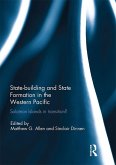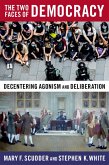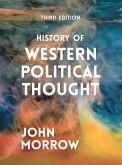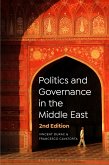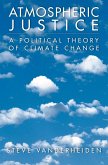While Western modern political thought has been a story of inclusion, it has also been one of continued exclusion and new forms of political oppression and silencing. This is why political theory is so necessary today.
Political thought is diverse. From liberal theories laying out ideal democratic institutions, to critical analyses of postcolonial settler states, to conceptual analyses of the nature of freedom, there are very different approaches, topics and aims within the tradition of Western political theory.
What binds these diverse forms of thinking together? How do how do they help us to understand political institutions, life, behaviour and events? How do they help us to make decisions in the complex world of politics?
This book, significantly revised and reconceptualized, introduces you to the modern discipline of political theory in the Western tradition, tackling its key debates, concepts, problems and traditions:
- What is the nature of political concepts? What problems do they pose to thinkers and political actors?
- How have modern political thinkers usually approached thinking about politics? How has this been problematized in contemporary debates?
- Has modern politics fundamentally ignored economically impoverished groups, women, indigenous peoples, racialized groups and the natural environment?
- How have ideas like freedom, equality, sovereignty and the state been conceptualized in the modern tradition? What tensions has this given rise to?
Delving into topics as diverse as Maoism, postcolonialism and white supremacy, boxed features give you room to explore and expand in political theorising:
-Focusing on the texts: helps you deal with difficult texts and arguments
-Tradition: introduces you to major approaches to political theory
-Thinker: allows you to understand the contributions of major figures in political thought
-Thinking globally: gives insight into how political theory is adapting to global interconnectedness
-Beyond the West: makes you reflect on what can be learnt from non-Western approaches.
Spanning the development of Western political thought, from Thucydides through to John Rawls and beyond, with a focus on Modern and contemporary debates, this is an essential text for undergraduate and postgraduate courses on political thought and political philosophy.
Political thought is diverse. From liberal theories laying out ideal democratic institutions, to critical analyses of postcolonial settler states, to conceptual analyses of the nature of freedom, there are very different approaches, topics and aims within the tradition of Western political theory.
What binds these diverse forms of thinking together? How do how do they help us to understand political institutions, life, behaviour and events? How do they help us to make decisions in the complex world of politics?
This book, significantly revised and reconceptualized, introduces you to the modern discipline of political theory in the Western tradition, tackling its key debates, concepts, problems and traditions:
- What is the nature of political concepts? What problems do they pose to thinkers and political actors?
- How have modern political thinkers usually approached thinking about politics? How has this been problematized in contemporary debates?
- Has modern politics fundamentally ignored economically impoverished groups, women, indigenous peoples, racialized groups and the natural environment?
- How have ideas like freedom, equality, sovereignty and the state been conceptualized in the modern tradition? What tensions has this given rise to?
Delving into topics as diverse as Maoism, postcolonialism and white supremacy, boxed features give you room to explore and expand in political theorising:
-Focusing on the texts: helps you deal with difficult texts and arguments
-Tradition: introduces you to major approaches to political theory
-Thinker: allows you to understand the contributions of major figures in political thought
-Thinking globally: gives insight into how political theory is adapting to global interconnectedness
-Beyond the West: makes you reflect on what can be learnt from non-Western approaches.
Spanning the development of Western political thought, from Thucydides through to John Rawls and beyond, with a focus on Modern and contemporary debates, this is an essential text for undergraduate and postgraduate courses on political thought and political philosophy.



